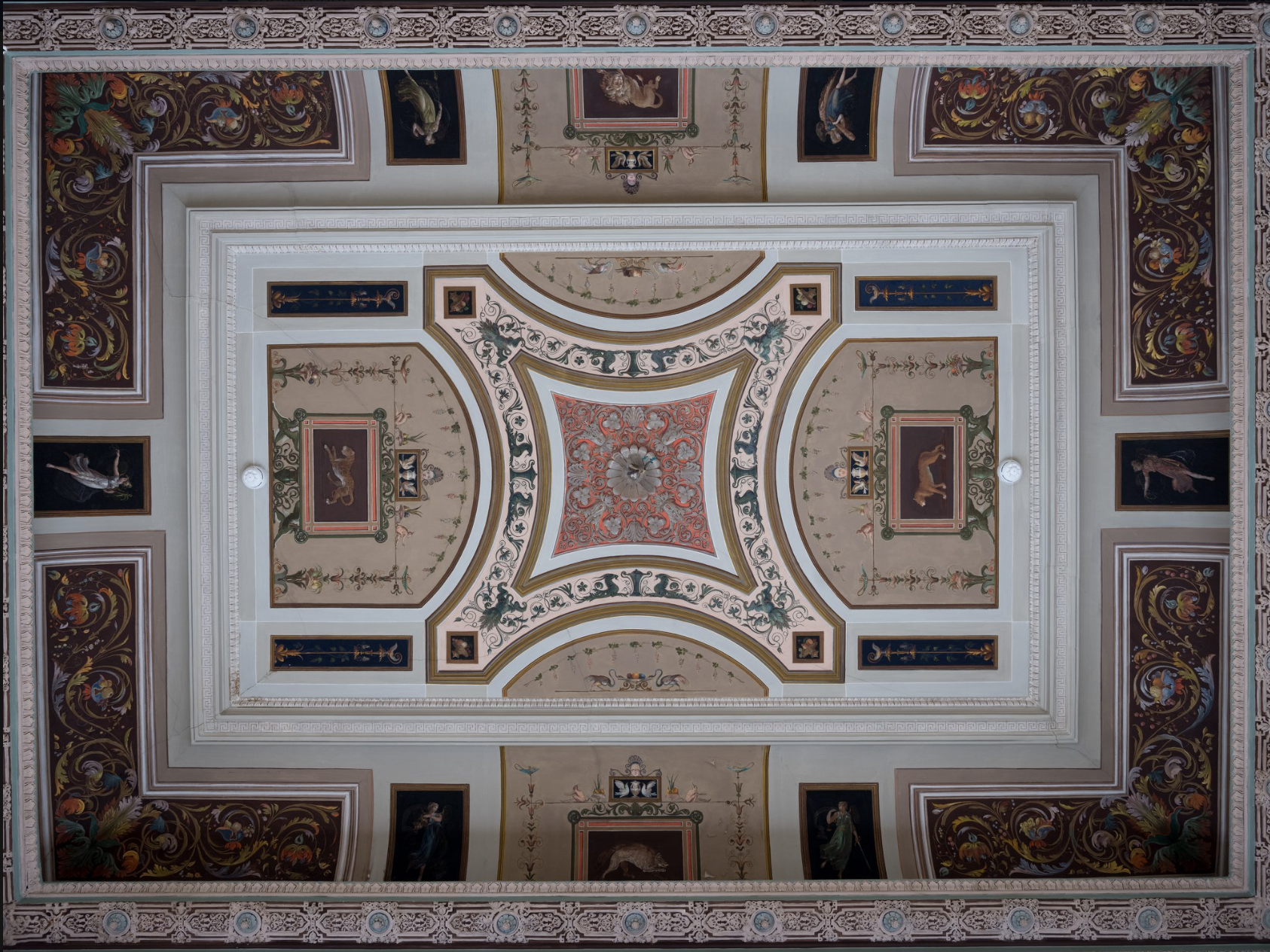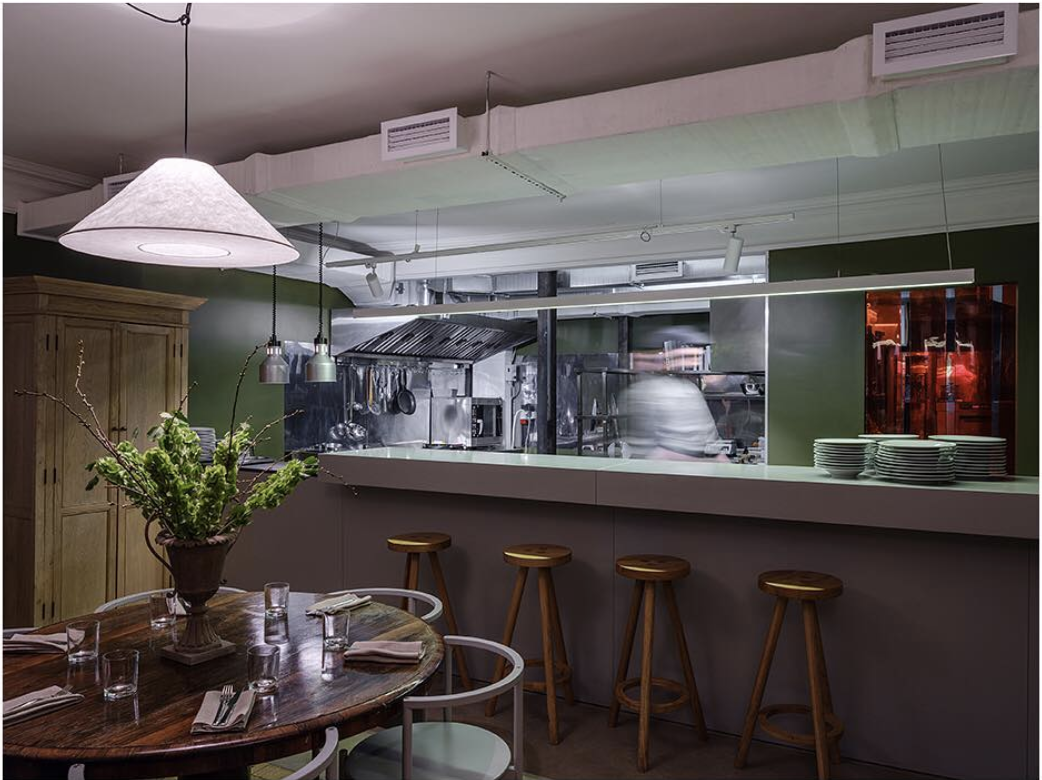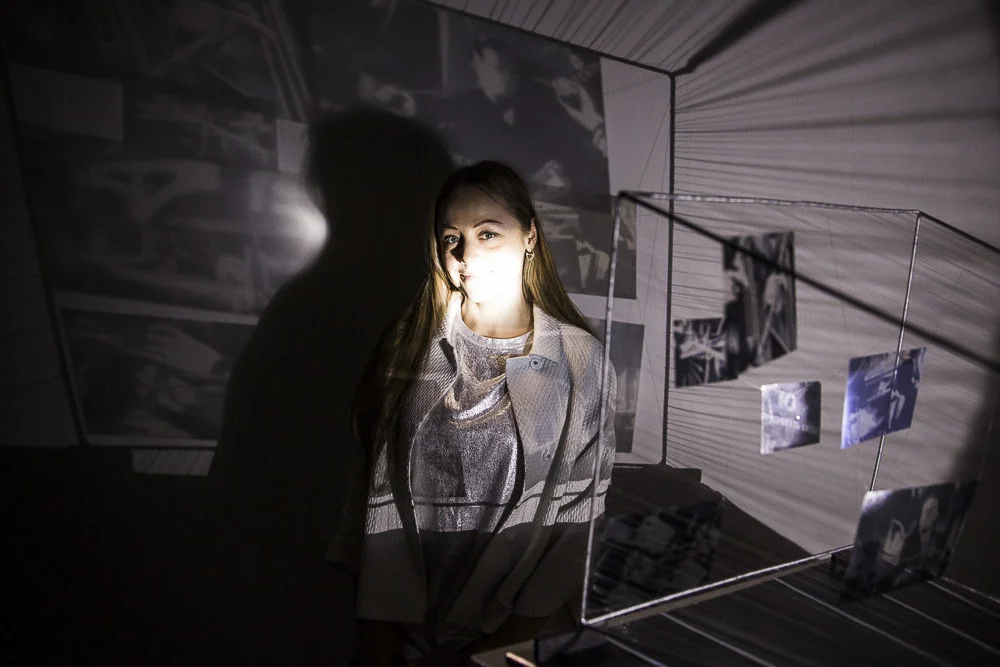Nastya, founder of Richter
“Serendipity” and “selection” are words I could tattoo on my hands : a contradictory injunction to keep in mind and under my eyes when typing on my computer or scrolling on social media.
They could be carved on the pediment of Richter, an old mansion and new unclassifiable place to live located at the very center of Moscow, near Novokuznetskaya, opened in December 2019.
They led me to Nastya, Richter’s founder, who told the story of the place with such energy and efficiency that she created a feeling of belonging and inspiration: if such a project can grow in spite of the pitfalls, let’s move forward and join the creative entrepreneurs’ club.
About Nastya and what drives her
The story begins with a line of strong women. Nastya’s grandmother was in the construction herself. Under her management, the Moscow State University main building, the Luzhniki Stadium and some others were built in the 50’s. This small and brave woman passed on her love for construction sites to her granddaughter. With her Master in political sciences, Nastya understood that lifestyle and art are soft powers, and that combined with her construction heritage, it could achieve great things. Convinced that “making your own business is the only way to create now in Russia”, she opened a hotel, back in 2016, with Alexey Chichvarin.
The Brick Hotel is a cosy boutique design hotel in the heart of the French neighbourhood. The urge to knock down walls and to have a bigger space dedicated to creating together lead Nastya to open Richter.
Her signature could be the trendy mix of art and business, creativity and strong storytelling, and her ability to gather talented people and energies. The importance of her team seems not to be a marketing argument but rather the human soil on which her projects grow. It is even political: collaboration in the country of communism.
At the time of influencers and trendsetters, Nastya also wishes to plant a seed by setting an example and inspiring the younger generation, especially those she teaches in the “hotel and small businesses section” she runs at the Higher School of Economics.
“You need to change something in the country and you need to start with yourself, to do something with your own hands, to make people understand that you don’t need to be brave to be an entrepreneur, you just need to start with small steps”.
You do need to be optimistic - in a very Russian way: “I believe in people. In maybe 5, 10 years, the situation will change. I know a lot of people who stayed. I had an opportunity to leave for a PhD in a European university. But I never left because I believe that life goes on. One can say it is stupid but the key is to act and do something”.
So her latest act of entrepreneurial bravery is called Richter.
About Richter
Last September, the Cosmoscow art fair parallel program included a new venue: an old mansion whose old-fashioned charm was balanced by its damaged walls and stairs. After few weeks of renovation, the place reopened in December for the New Year’s festivities under Nastya’s command.
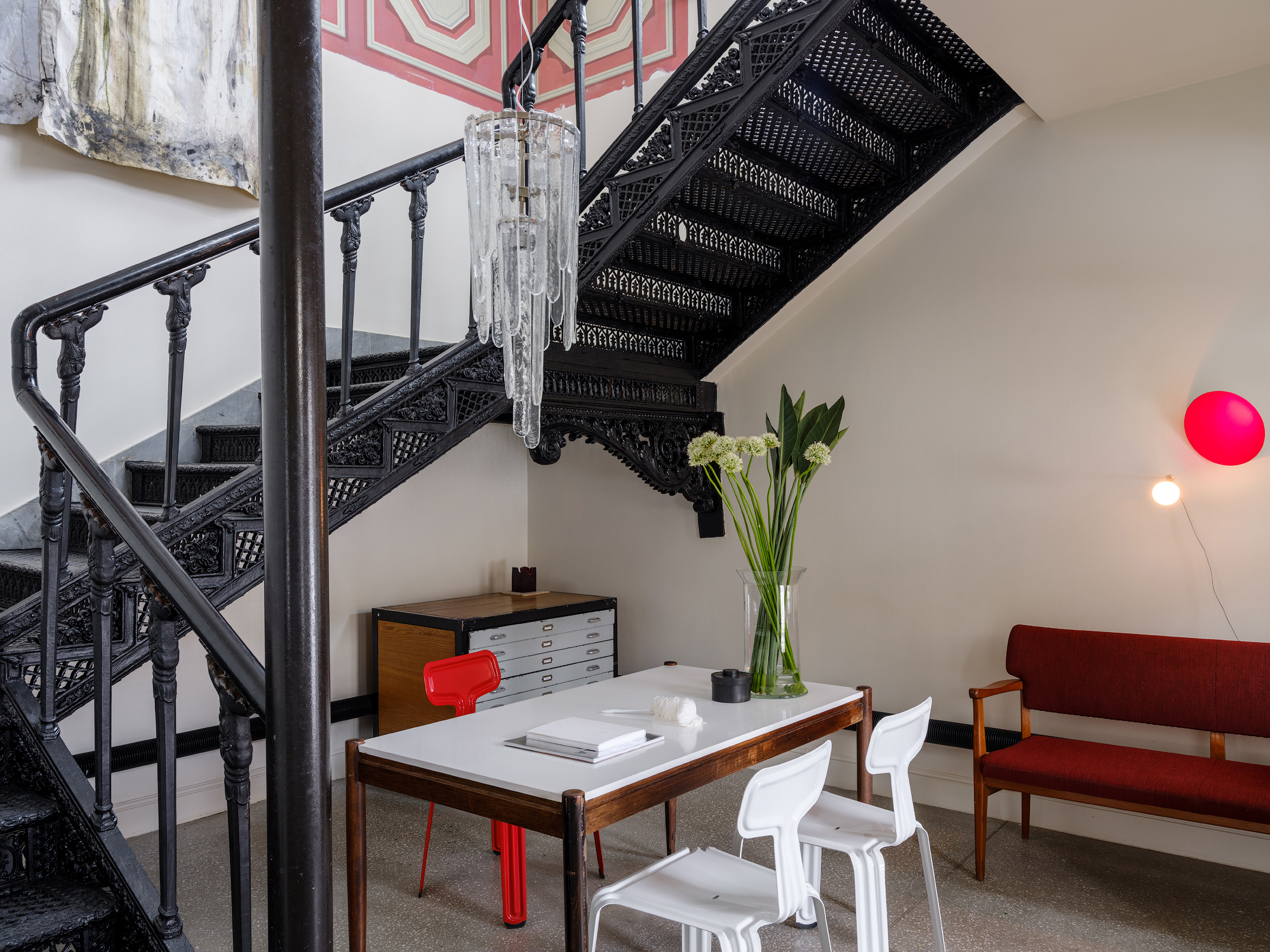
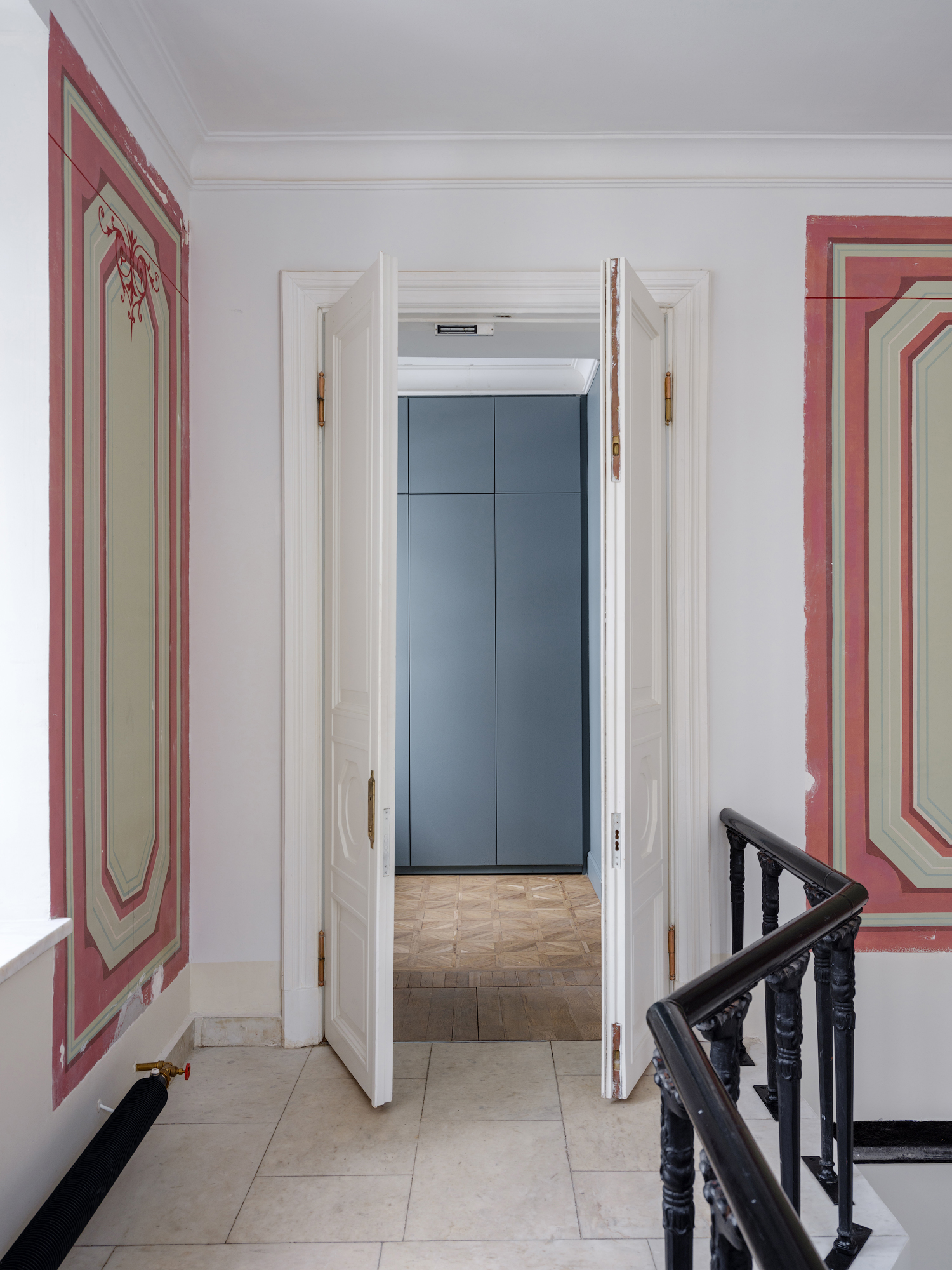
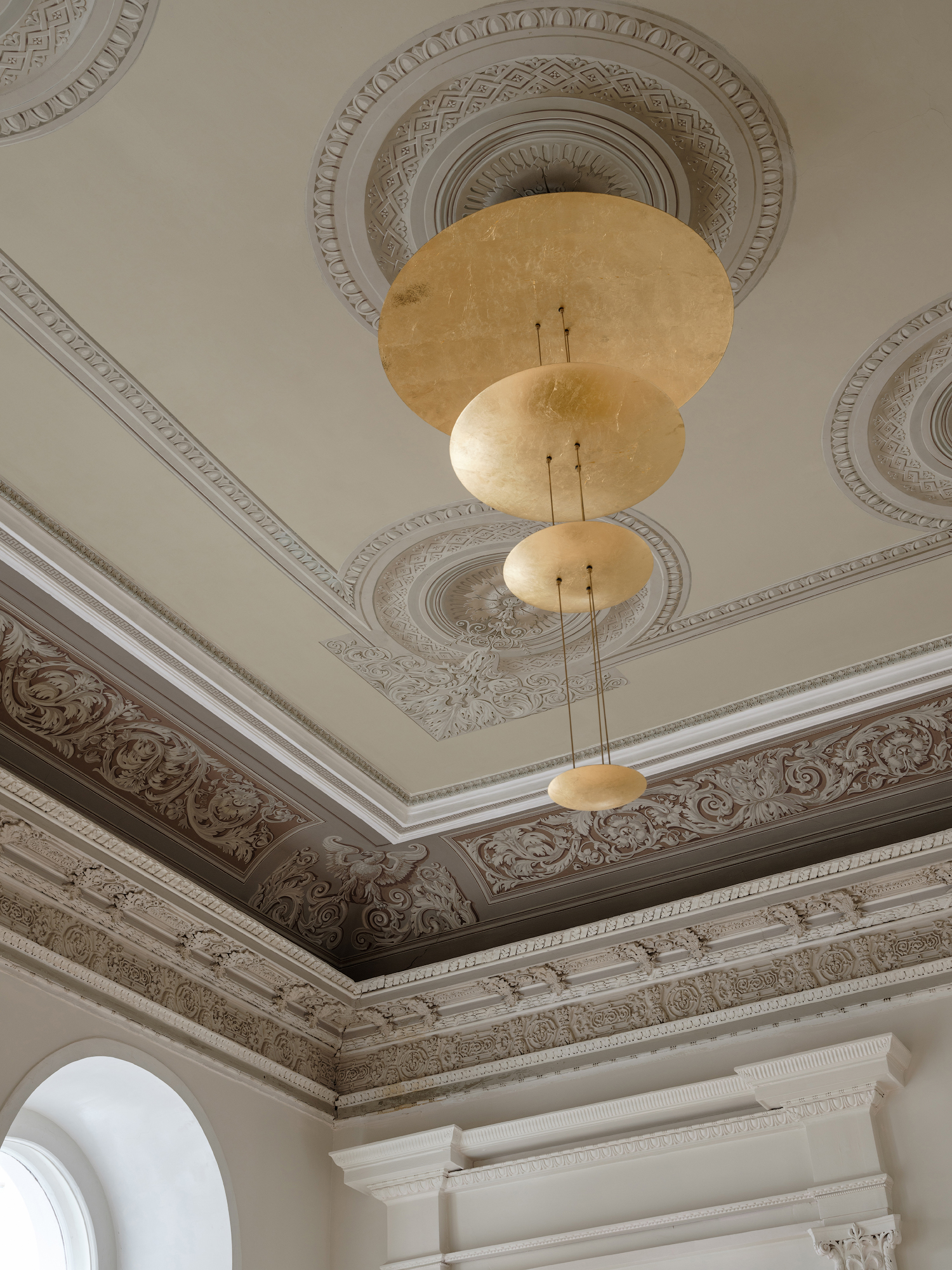
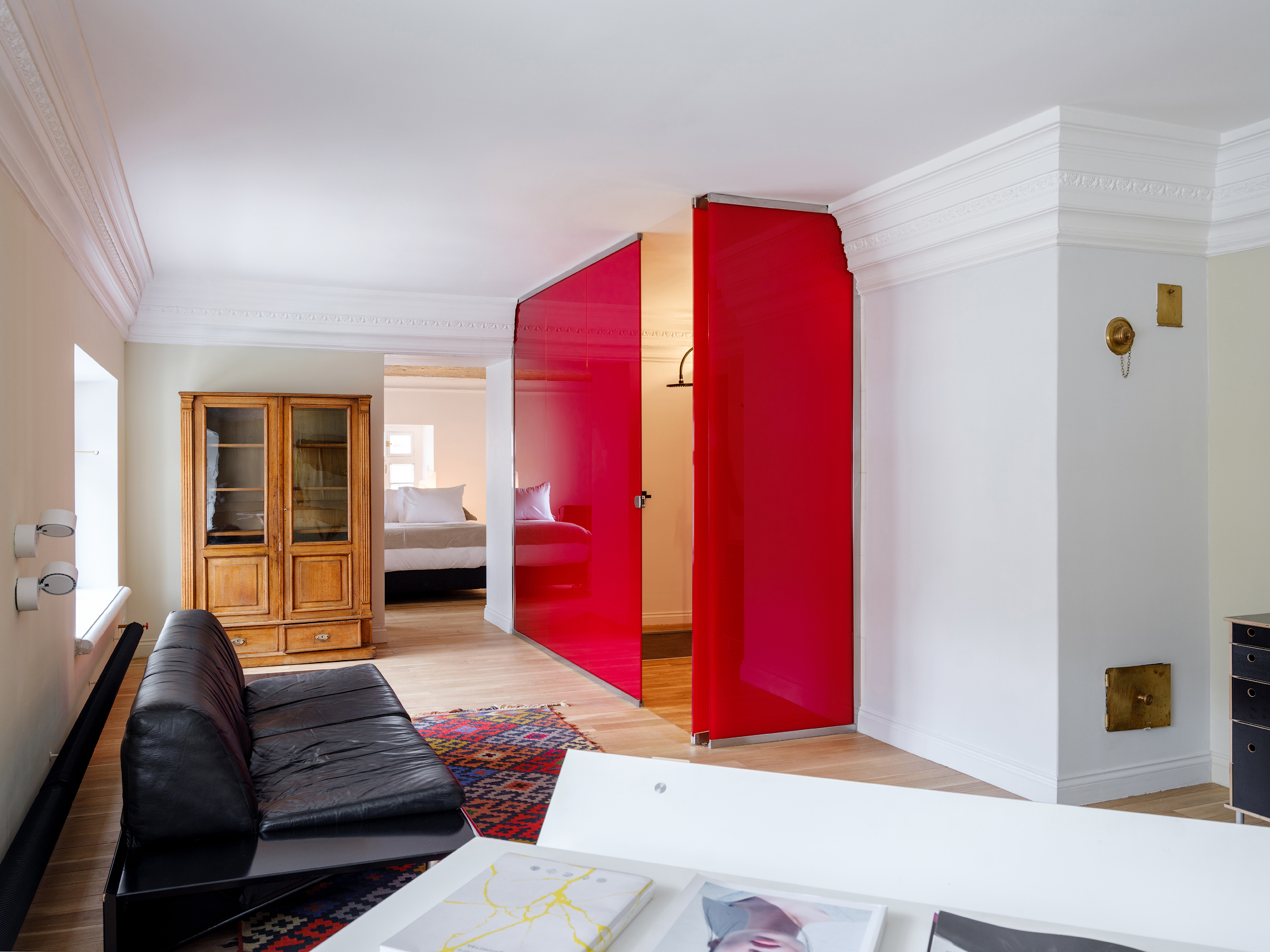
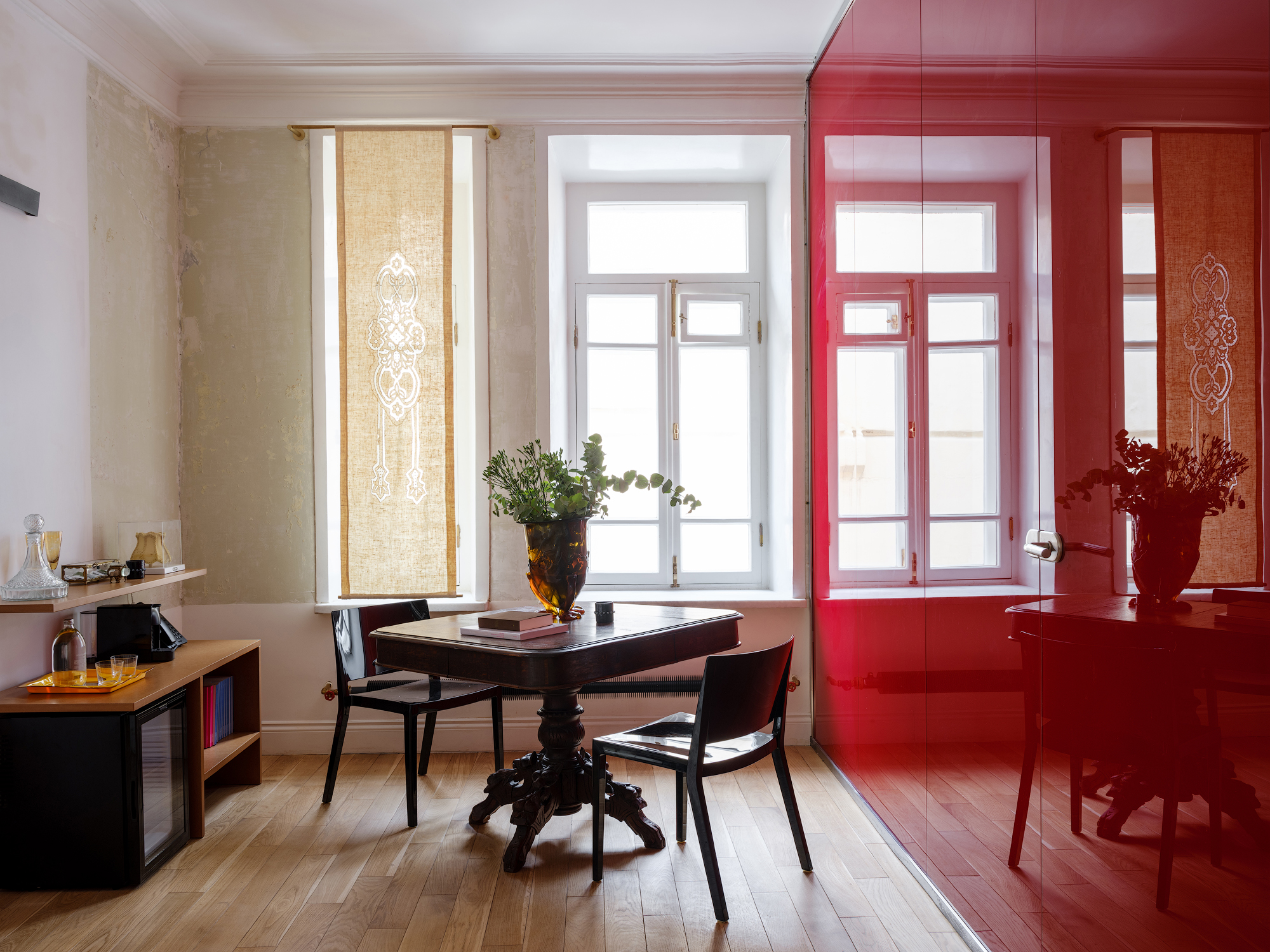
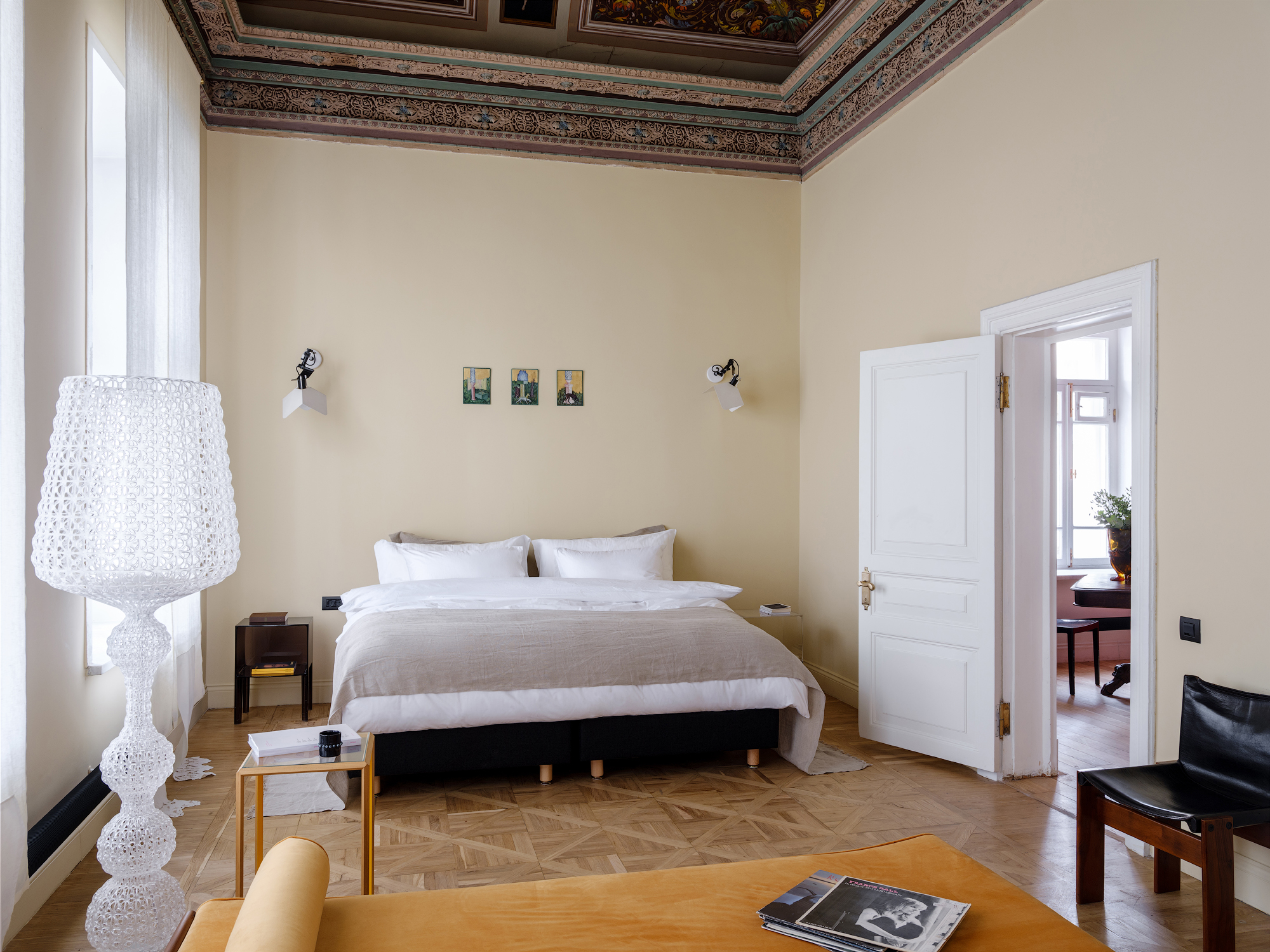
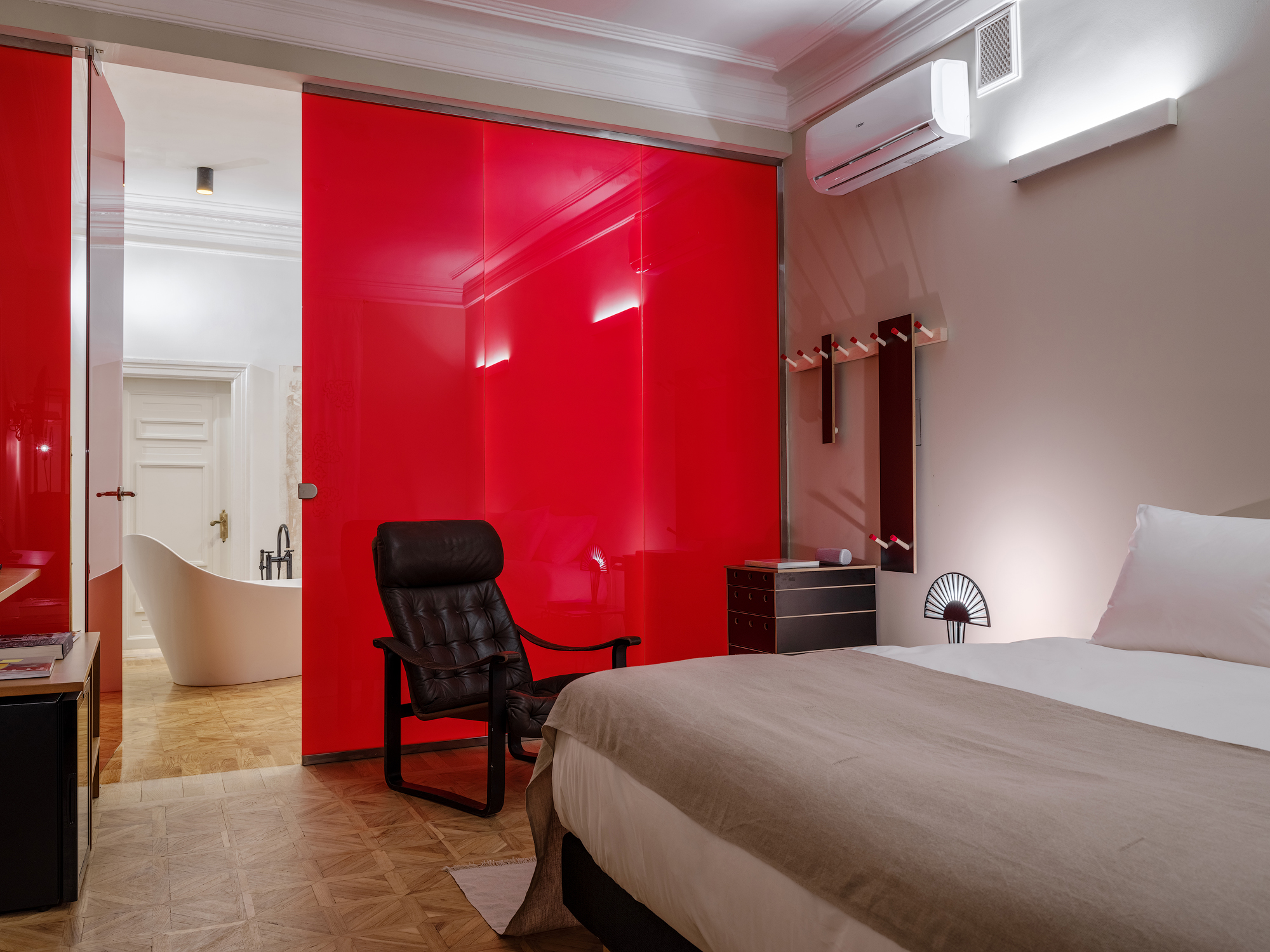
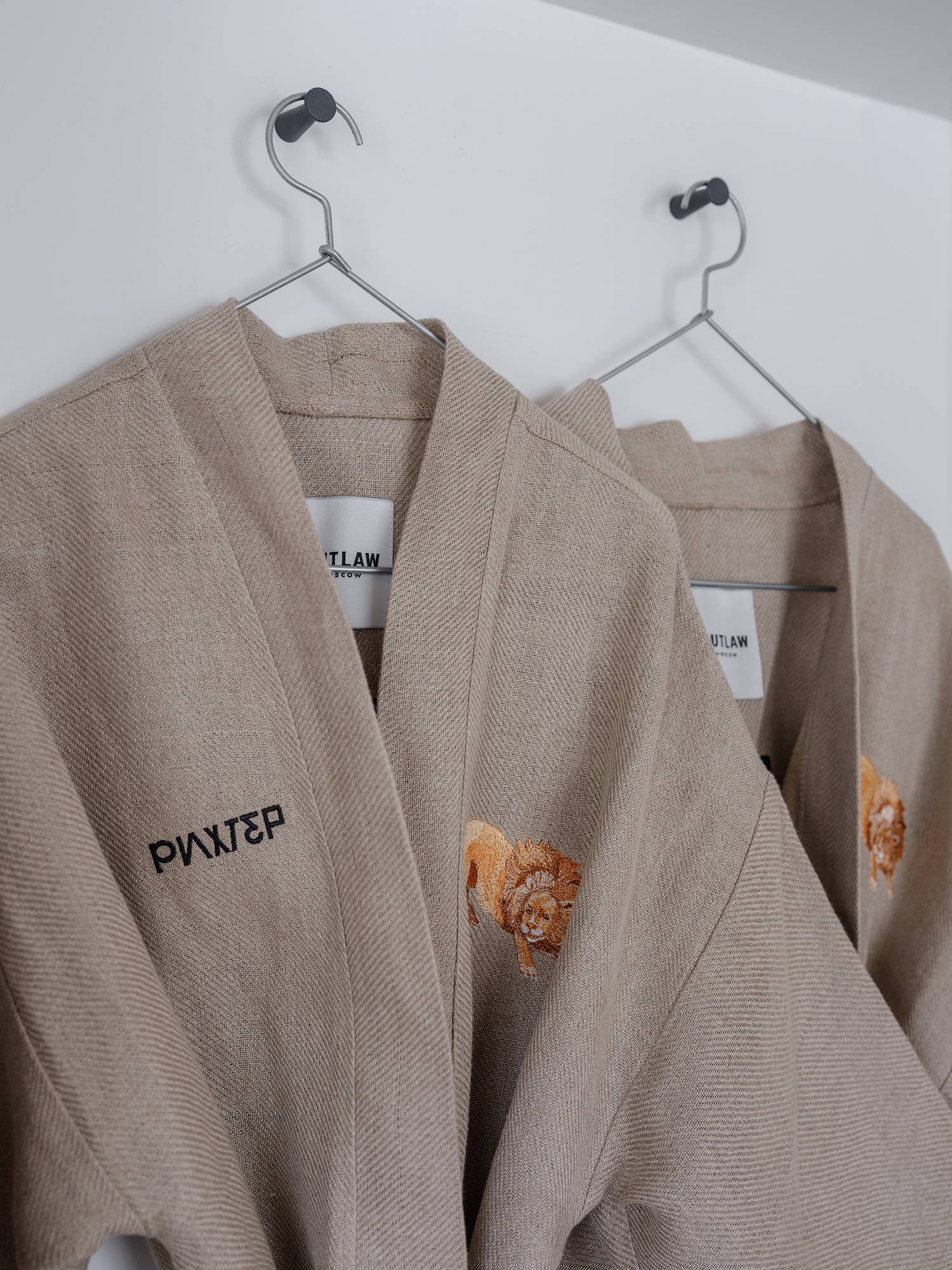
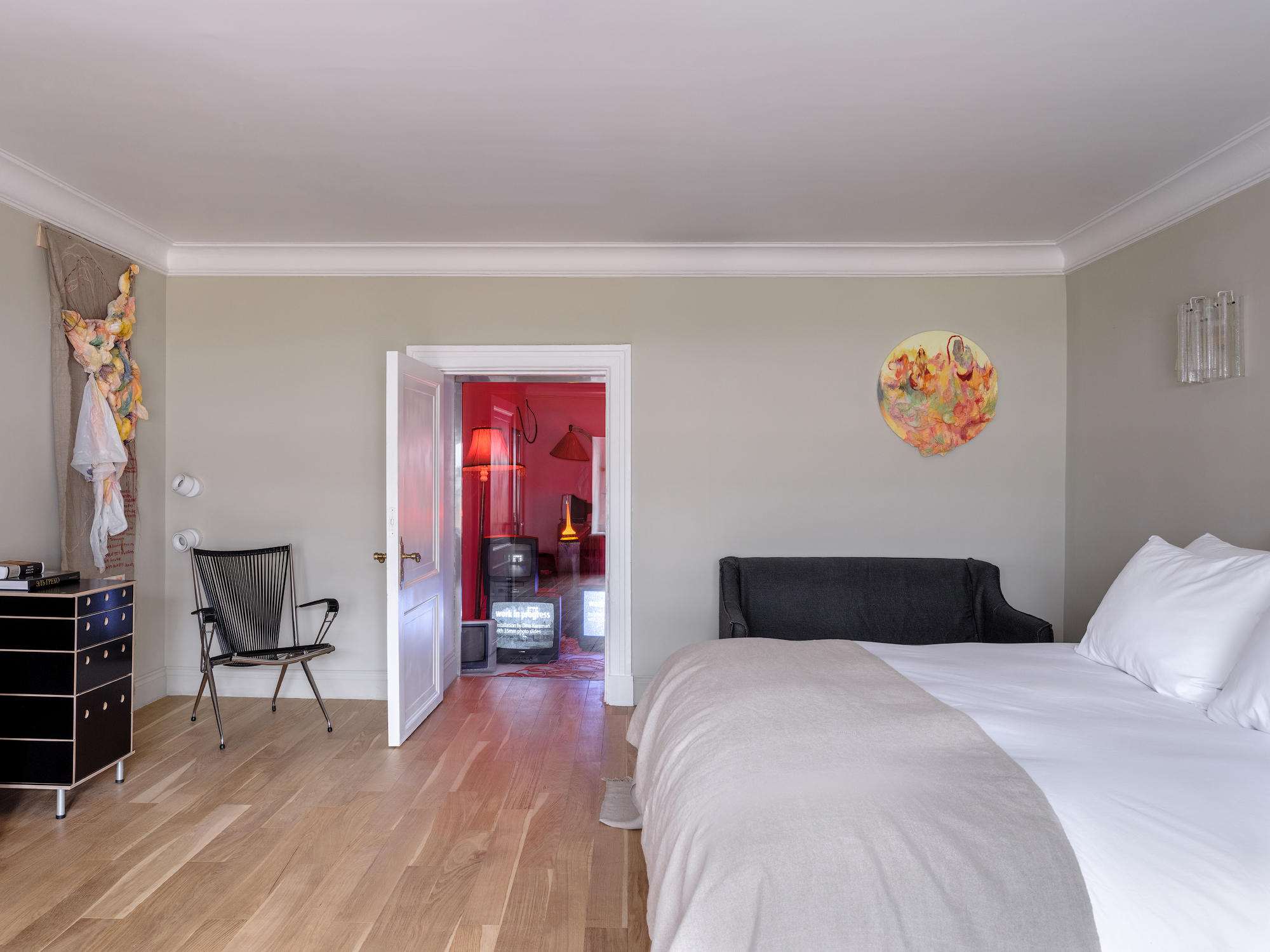
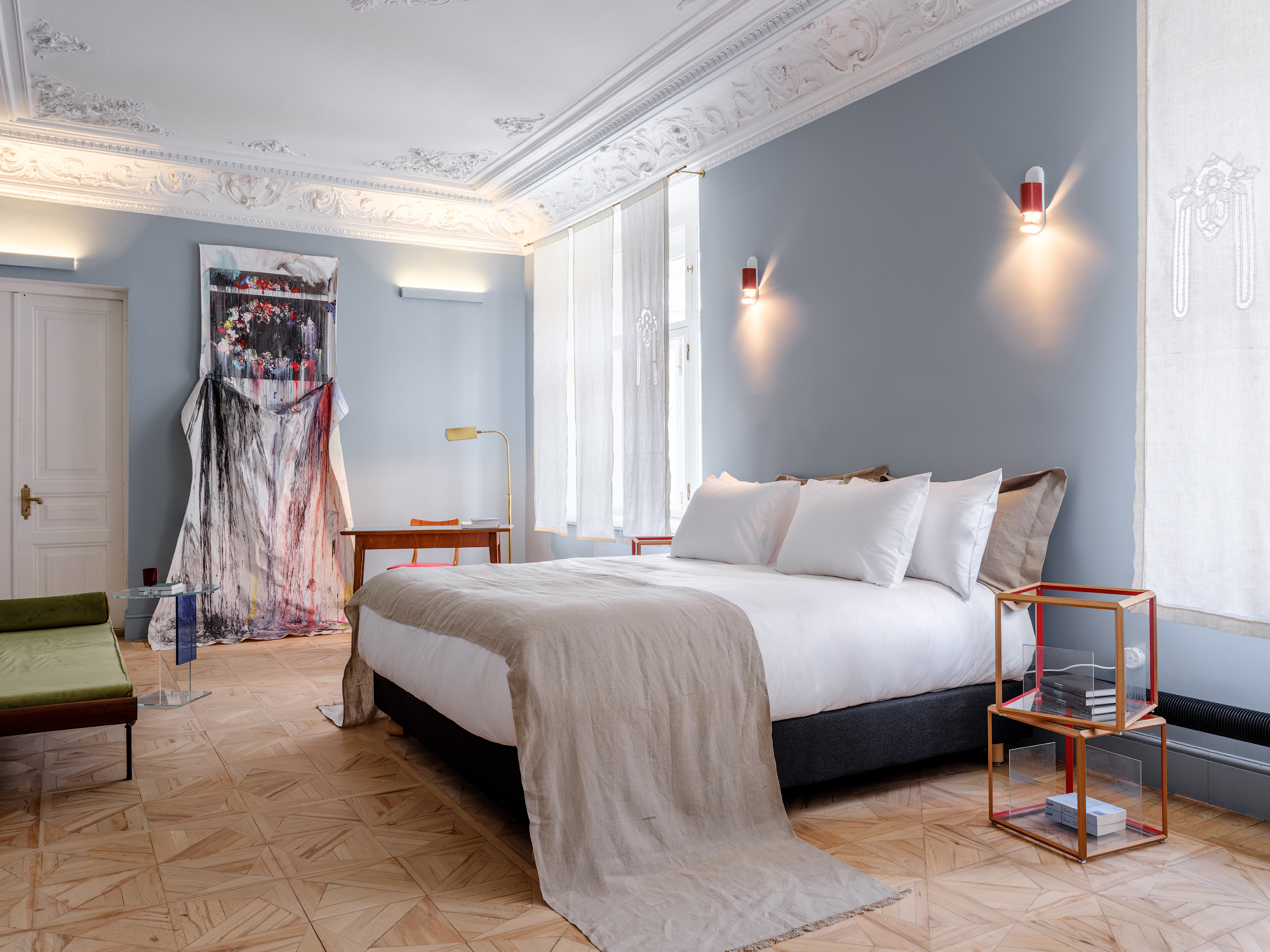
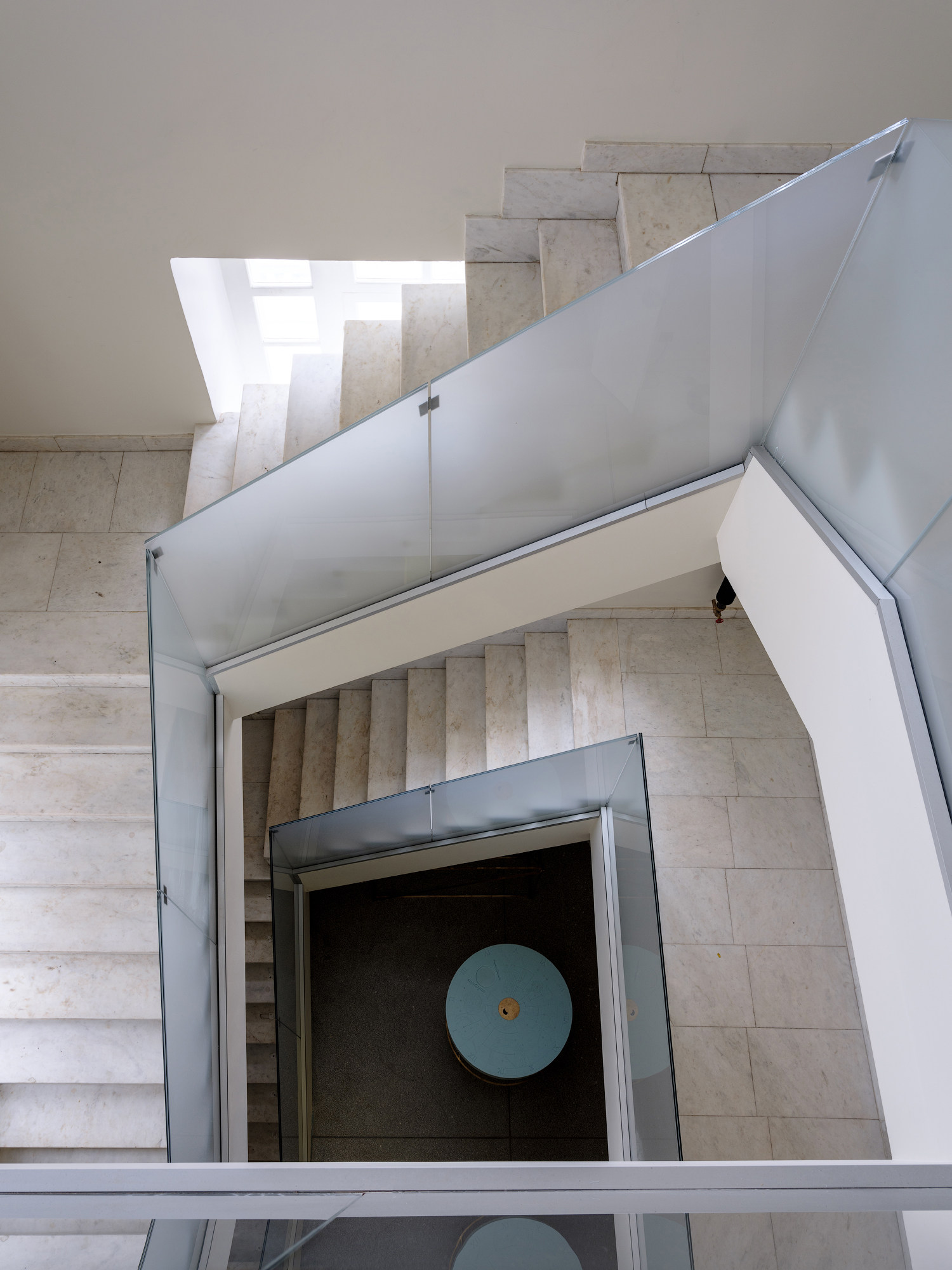
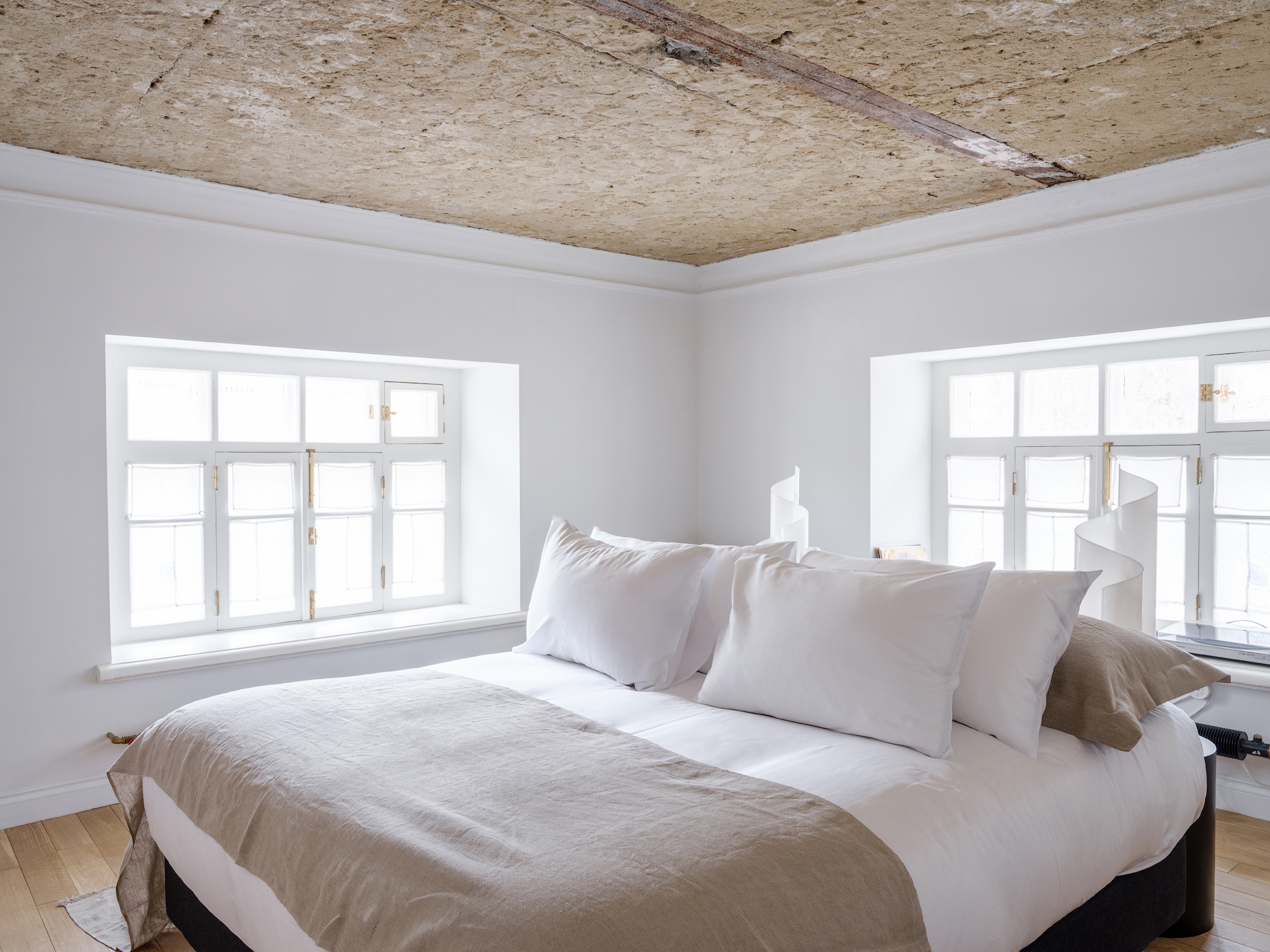
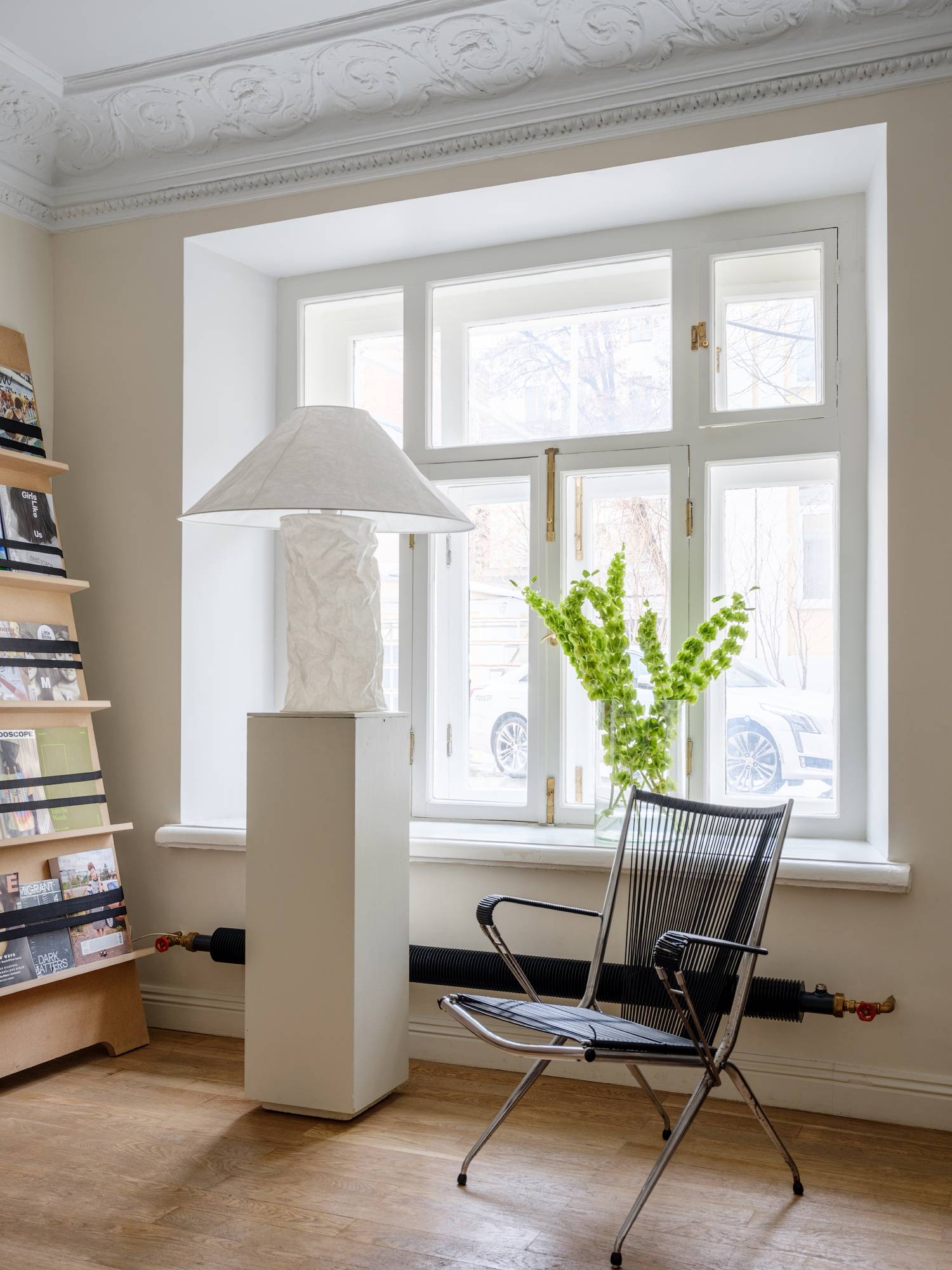
Richter is… many things: a hotel, restaurant, bar, library, creative lab hosting in its basement a print studio, Szena gallery - a chamber art space, curated by Anastasia Shavlokhova, focused on a new generation of artists from so-called New East - a recording studio and a radio station. Experimentation and curation are the key words holding it together.
For example, in the kitchen, the vegetarian chef Ivan Dubkov puts into practice his progressive ideas on food consumption as a way to respect the earth and our inner selves. He plans to travel around the world to get inspired and share his discoveries in a documentary about a new approach to food and consumption.
This ambition to create something new under one roof attracted people from different fields of expertise (Yegor Mostovshchikov from Mamihlapinatana studio, architecture bureau Hora, gallerist Anastasia Shavlokhova…). Each of them shares the space and contributes to the concept with great freedom. This collaboration takes different forms and financial arrangements but everyone believes that they will benefit from the other’s activities and events. And the declared “wall of China” between Richter’s residents and its investor allows them the flexibility to create and try new approaches in their activities.
If “soft power” is the ability to shape the preferences of others through appeal and attraction, this is already working for Richter, whose social accounts are already followed by thousands of people even though the hotel is not open yet.
Moreover, Richter is shaping the preferences of others through an assumed selection of content and collaborations. Nastya chose to go against mainstream practice to find inspiration: “I hate the culture of Pinterest inspiration because you can never create something new if you are doing it from your Pinterest board. What inspires me is people, and I am very grateful to meet very interesting people everyday. Of course I travel, go to museums, visit hundreds of hotels a year to see the trends. But I try not to repeat anything. For example, I truly believe that the culture of cross-cultural magazines - like 212, 032с …- is very important. Because when you don’t have enough time, you can see what happens only in ten pictures, with major photographers, designers, and this is the reason why we now see the revival of these magazines. This is also why I am very happy to have Konstantin Kotov, founder of Lebigmag and the first to bring these magazines to Russia, in our team of in-house residency-curators. Going back to slower ways of analysing is deeper than just fast scrolling, because there is a pre-selection.
Richter is all about selection. Nowadays, you choose the decision makers, opinion leaders, and curators who do this selection for you. For Richter to be this resource for people, we are working hard to build trust thanks to impeccable selection.”
About being an entrepreneur in today Russia
Whereas creating a “third-place” like Richter would not have been so fresh in different places of the world, it still is a bold move in Moscow. “It is never a good time to be an entrepreneur because you need to be brave enough, to have a willingness for risk. It is never easy when you do things”. We all have to find out to which extent we are born to create or not.
Regarding Nastya, she has no doubt about it and relies on people around her to face the daily business issues and gather the strength she needs to be a young woman in the construction industry. Meeting her was also an opportunity to understand that she created her business in her own image. Richter is a place that appeals to all senses because it is what is fueling Nastya’s energy.
“When your business is something you can feel, eat, touch… you find your inspiration. Especially, the team is the most important and the most significant thing in Richter. It is like alchemy. When I feel down, I go see my teams at the Brick Hotel or Richter and it gives me strength. Because the power of these places does not come from me but from the people invested in it. When I see what we achieved in three months - the reconstruction of this building - I cannot believe it myself. The team was working 24h a day, changing shifts. This was some kind of magic. What you give to the project is given back to you.”
And given to the country, I would add. Because the idea of setting an example has been very present in our discussion. Creative small businesses are emerging in Russia, not only in Moscow and St Petersburg but also in the regions, helped by social media and digitisation.
Our time is also intrinsically favourable because the people at work are in their 30s: a generation rooted in contemporary Russia. “People like my father, who felt rooted in USSR, because they were born there, cannot believe in anything now. They cannot create, because their world was broken. I was born in 1988, and I have not seen this change. I grew up in this country and started believing we could change it.” Not only change it but rehabilitate the creative minds who deserve better exposure: “In the 90s, we were trying to escape communism. It is not very fair because, at that time [Soviet era], we had very nice design, great writers and artists. They could not travel, they could not see the world, so they created their inner world - that was very very special. That was the blue ocean strategy itself, very organic. We can gain a lot of experience and expertise from that. In the 90s, they dramatically destroyed all the memories of it, and now we have to restore them. The first time I went to Paris, 10 years ago, I was shocked: there was much more Russian heritage there than in Moscow. Here, because of all the drama, we refuse our culture and our roots. It makes it difficult to be ‘locally’ inspired.”
And the circle is complete: “Architecture is a very important part of our story. This is the only thing that can tell you about the political situation at the moment it was built. Architecture is always history alive as an art piece.”
Nastya’s grandmother can be proud of her.
Credits :
Photo of Nastya : Jenia Filatova
Photos of the place : Mikhail Loskutov

